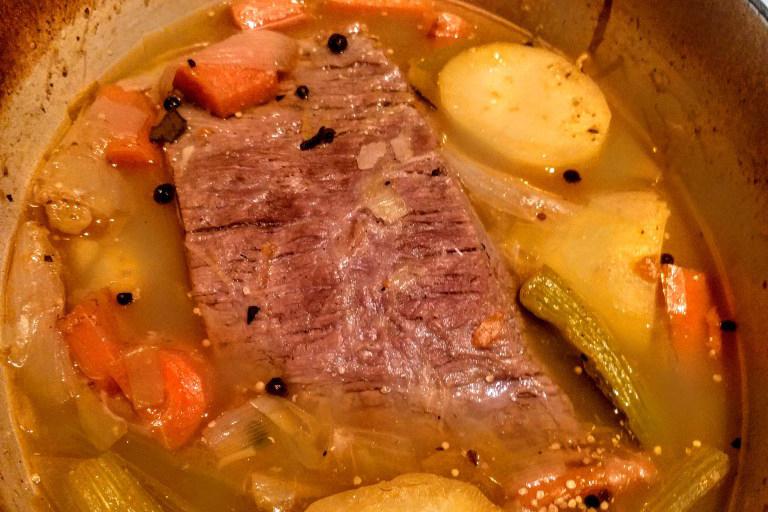
Saint Patrick's Day is Saturday. Maybe you celebrate with corned beef and cabbage?
Well, Hugh O'Neill is here to throw a little cold water on your day. A food writer and the former owner of St. Killian's Cheese Shop, he says the dish didn't come from Ireland -- where he grew up and where he’d never even heard of it. But that doesn't mean it isn't a great traditional food.
Where did it come from? O’Neill says that in the middle of the 19th century when the Irish came to America during the famine, many moved to Brooklyn where Jews had already settled. There was no pork to put in a real Irish dish -- bacon and cabbage -- but there was beef brisket. And slowly it starts to become associated with the Irish.
Interview Highlights With Hugh O'Neill
On whether or not corned beef and cabbage came from Ireland:
“I went back to Ireland and asked people have you heard of it? Have you heard of it? And no has ever heard of this meal in Ireland. It’s an American-Irish thing.”
On where corned beef and cabbage actually came from:
“It came out of Brooklyn, NY… And it was the Irish coming to New York and they’d be sent over to Brooklyn. They didn’t have language skills, it was in the mid-19th century during the time of the Irish famine. They were poor, they were sick, and the people who really had empathy with them there was the Jewish community in Brooklyn.
“As soon as they started to get themselves together and started to get a bit of money in their pockets they would go to the Jewish deli in order to support these people who helped them out. And of course they were surprised that there was no bacon in these shops, because the Jewish don’t eat pork products. But the Irish saw that the cheapest cut of beef in the shop was brisket so they bought the brisket which was preserved, corned.”
On the changes America and the world has made to the beloved Irish holiday:
“I kind of see [St. Patrick’s Day] as an immigrants’ day that everybody can celebrate their heritage because most people here are immigrants.”








